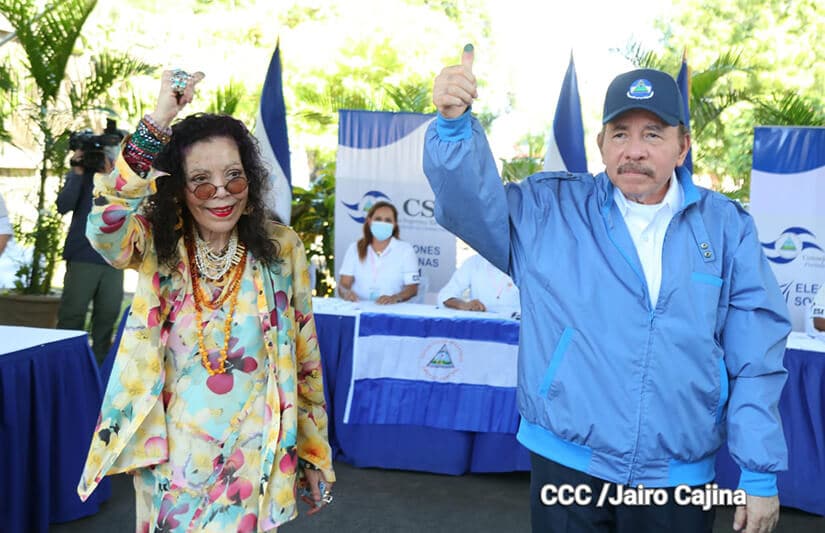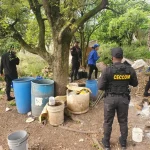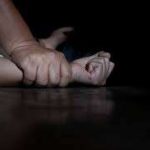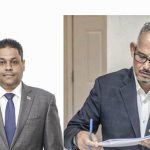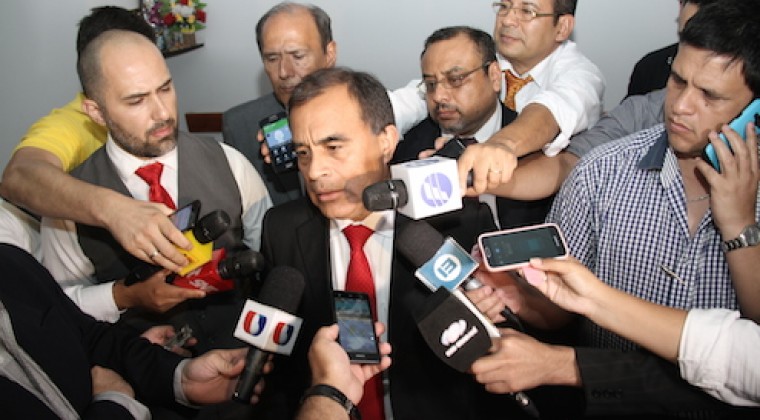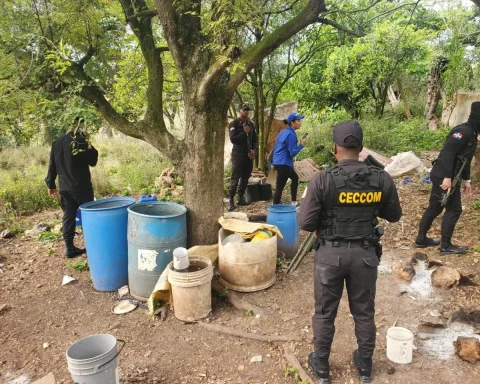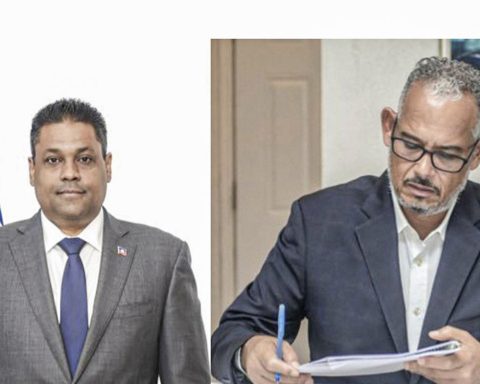The lack of legitimacy and political confidence in the system of government established by the regime of Daniel Ortega and Rosario Murillo has led Nicaraguans to “fatalism” about the possibility of achieving the restoration of civil liberties and expression through voting in the elections and the street protest, warned the analyst Jose Miguel CruzDirector of Research at the Kimberly Green Latin American and Caribbean Center at Florida International University.
In an interview for the show Tonight Y CONFIDENTIAL, Cruz analyzed the results of the study Political culture of democracy in Nicaragua and the Americas 2021: Taking the pulse of democracy, developed by the AmericasBarometer, sponsored by the Latin American Public Opinion Project (LAPOP) and Vanderbilt University.
In this specialized survey he incorporated as a question, “What is the way in which you think you can have the most influence to change things??”, and their results established that the elections are no longer a reliable mechanism to achieve political change.
Only 21% of those consulted expressed that by means of the vote favorable political changes could be achieved, 9% answered that through street protest, but even a 50% responded that in Nicaragua it is not possible to influence such changes.
“There is fatalism among Nicaraguans”
The researcher highlighted that the results revealed a radical change in the political culture of Nicaraguans, who were traditionally characterized by having great faith in voting as an engine of change. “That faith was lost. That has been lost because people were clear last year, before the elections, that voting was no longer going to change things and, unfortunately, people were right, because voting did not change things.
“There is a fatalism, I would say, in almost half of the people who participated in the survey, who told us no, that things could not be changed. And that is the product of the regime’s efforts to control absolutely everything and to close the spaces for political participation. This is one of the most eloquent results of this survey, and it shows the level of collapse of political and democratic participation in Nicaragua”, he added.
The researcher highlighted that this negativity was reflected during the voting without political competition that took place self-adjudicated the regime on November 7 of 2021, in which organizations such as Urna Abiertas registered an abstention rate that exceeded 80%.
An illegitimate political system
“This had a decisive influence. The fact that for a good part, and I would say, the majority of Nicaraguans, the current political system is not legitimate, and it is not legitimate because it does not stay in power through democratic means, is very important. But, beyond that, there is not much, and people have lost a lot of faith, a lot of trust in the political system,” Cruz stressed.
The field work for the collection of this data in Nicaragua was carried out between June 3 and August 22, 2021, through 2997 telephone interviews carried out by the pollster Borge y Asociados.
Therefore, the impact of the electoral farce of November 7 and repressive events that occurred in 2022, such as the hunt for NGOs, the closure and confiscation of media outlets, and the persecution and imprisonment of priests of the Catholic Church.
However, Cruz explained that the fatalism expressed by citizens in the study does not imply that the Ortega regime maintains permanent political stability.
Strong democracy, key to economic growth
“What people are clear about is that this regime controls absolutely everything, and that it is very difficult to challenge the regime. It is very dangerous, not just difficult, to challenge the regime. I think that in that sense the regime can be seen as stable. But, on the other hand, I think it is important to add that the majority of citizens now place a lot of value on democracy, they place a lot of value on political freedoms, on the possibility of having a system that respects those freedoms, that provides free elections,” Cruz noted.
“Before, it seemed that Nicaraguans were somehow satisfied with a system that would guarantee them income and benefits. Now I think they have realized the importance of freedoms, of democracy, to have prosperity, even to have economic development”, he added.
Although the study did not examine the level of political support that Daniel Ortega would haveCruz said that the collapse of confidence in the regime’s institutions is a good thermometer for the political muscle of the regime.
“We ask about how much trust they have, for example, in the National Assembly, in the justice system, in the Electoral Council, and in other institutions such as the Police. All of those levels of trust have come crashing down, and they have crashed down consistently,” he explained.
“We don’t ask this time directly,How much do you support the government?? Because this survey was done by telephone, probabilistically. Given the level of repression and the level of fear that exists among the population, we found that if we asked directly about the regime, people would get very scared and cut us off from the interview at that moment”, he clarified.
The collapse of public servant standards
Another revealing piece of information from the survey was the increase in the perception of corruption in the police, the main repressive arm of the regime, in relation to what the study calls “bites”, that is, bribes or bribes that agents ask of citizens. But more striking were the results around public employees.
“Nicaragua always pointed out, comparatively high with other countries with the issue of Police corruption, that the Police asked people for bribes. It always appeared with a relatively high percentage, around 9 and 10%. In this survey, those percentages increased notably, they have doubled. Over the course of two years, basically, people started saying that they had been victims of corruption by 20%, in the case of the police officers,” he stressed.
“The case of public employees is even more notable. Before, people told us that about 5% of them had been victims of corruption by public employees. That has reached 22%. This means that the level of victimization by corruption at the hands of public employees has quadrupled; which reflects a collapse of the norms that govern public service in Nicaragua, at the expense of Nicaraguan citizens, in view of the collapse and the little legitimacy of the current regime,” Cruz stressed.
